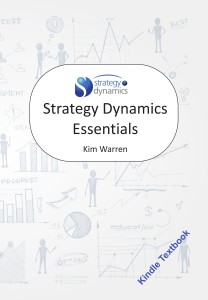Kim Warren on Strategy
Strategy insights and living business models
Wal-Mart = 'Environmental Protection Agency'?
Sloan Mgmt Review highlights a New York Times article on Walmart’s toughening stance on environmental sustainability. It also points out the inherent conflict in this – that W. relies on selling ‘stuff’ in vast quantities. Yet even so, their leverage over suppliers may make them a very effective ‘Environmental Protection Agency’.
This is an intrisically unsustainable activity, but the headline reminds me of some discussions with the David Bent of Forum for the Future, which is working hard to help businesses ‘make the case’ for including sustainability in their strategies and investment. FftF takes a broad view of this, based on its ‘Five Capitals’ model, which covers what it describes as Natural, Human, Social, Manufactured and Financial ‘capitals’.
To include this in an organisation’s strategic business management, the strategy dynamics approach would treat these just as any other accumulating asset-stocks, making the model considerably more usable and amenable to forming the foundation of any business case. The key structure as regards environmental sustainability is the three-stock chain from [a] natural resources, to [b] manufactured goods, to [c] waste. The chain can work in two ways.
- For ‘consumables’ like oil the natural resource is depleted and moves straight to an accumulation of waste.
- For ‘durables’ like metals the natural resource is converted into manufactured goods and then into waste.
Copyright © 2025 Kim Warren on Strategy. All rights reserved

